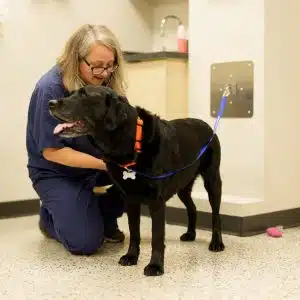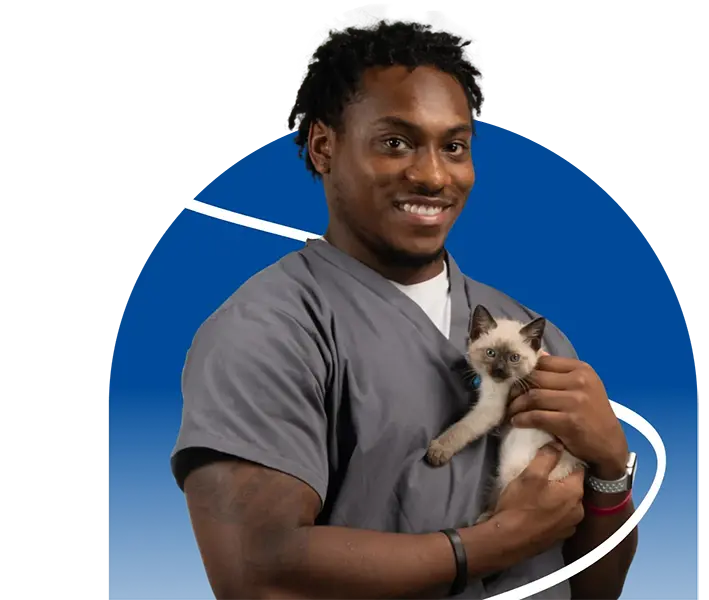How Pet Cancer Surgery can extend your pet’s life
Wiki Article
Exactly How a Vet Oncologist Can Assist Improve Your Pet dog's Lifestyle
Vet oncologists specialize in the diagnosis and treatment of cancer in pets, playing a vital duty in boosting their lifestyle. They develop tailored therapy strategies that resolve the one-of-a-kind demands of each pet. With sophisticated diagnostics and targeted therapies, these experts aim to manage symptoms effectively. However, the trip does not finish there. Exploring the complete range of care options reveals even more concerning exactly how these professionals can make a significant difference.
Recognizing the Function of a Veterinary Oncologist

Along with diagnosis, vet oncologists establish comprehensive therapy methods tailored to the demands of each family pet. These techniques might include radiation treatment, radiation therapy, and medical interventions, intended at not only expanding survival but additionally enhancing the total high quality of life. They give palliative care, concentrating on pain administration and convenience for animals encountering terminal diagnoses. By teaming up with pet proprietors, vet oncologists guarantee that family pets obtain the most caring and reliable treatment feasible during their cancer trip.
Customized Treatment Strategies for Your Family pet
When a pet dog is diagnosed with cancer, establishing a customized therapy strategy ends up being important for resolving their special demands and situations. A vet oncologist carefully assesses the kind of cancer, its phase, and the total wellness of the family pet. This extensive analysis enables the creation of a tailored strategy that might consist of a combination of chemotherapy, surgical treatment, and radiation therapy.The oncologist also considers the pet proprietor's choices and way of living, making certain that the strategy lines up with their goals for their animal's care. Pet Cancer Surgery. Therapy strategies are not fixed; they are consistently assessed and changed based on the animal's response and any kind of arising requirements. By focusing on customized treatment, veterinary oncologists intend to boost the efficiency of treatments while keeping the family pet's high quality of life. This customized approach cultivates a much better understanding of the disease, encouraging family pet owners to make enlightened decisions about their precious buddies' health
Managing Signs And Symptoms and Side Impacts
Taking care of the symptoms and side results of cancer therapy is an important element of vet oncology. Veterinary oncologists use a variety of techniques to relieve discomfort and boost the overall wellness of pet dogs undergoing treatment. This might include making use of anti-nausea medicines to battle vomiting and anorexia nervosa, which are usual side effects of chemotherapy. Pain monitoring is also prioritized, commonly entailing the prescription of analgesics tailored to the animal's certain demands.In addition, oncologists may suggest dietary modifications, including high-quality, easily digestible foods to support nutritional intake. Keeping an eye on blood job is essential to detect any unfavorable reactions to treatment early, enabling for timely interventions. Routine follow-ups allow the veterinary team to evaluate the animal's reaction to therapy and make required modifications. Through these extensive techniques, veterinary oncologists aim to boost the lifestyle for family pets encountering cancer cells therapy obstacles.
Palliative Care and Convenience Steps
Palliative care plays a crucial function in improving the high quality of life for animals detected with cancer cells, concentrating on convenience and emotional support as opposed to medicinal therapy. Veterinary oncologists focus on discomfort administration, assuring that family you can check here pets experience very little discomfort throughout their health problem. This includes using analgesics, anti-nausea medications, and various other therapies tailored to specific requirements.In addition to medicinal treatments, environmental alterations can substantially enhance an animal's lifestyle. Producing a calm, comfy area with soft bedding and very easy access to food and water can alleviate anxiety. Nutritional support is additionally necessary; oncologists may advise specialized diet regimens that deal with the pet dog's requirements and choices.
Emotional assistance for both the animal and its proprietors is important. Vet oncologists offer guidance on dealing methods, helping households browse the emotional obstacles that accompany a cancer cells medical diagnosis. Eventually, palliative treatment aims to ensure that pet dogs receive the this website self-respect and convenience they are worthy of.
Teaming up With Your Regular Veterinarian
Cooperation with a regular veterinarian is necessary for optimizing the care of family pets with cancer cells, as this partnership ensures a thorough method to therapy and lifestyle. The regular vet usually has a thorough understanding of the pet's medical history, which is crucial when creating a therapy plan. They can successfully connect with the vet oncologist, ensuring that all aspects of the animal's health and wellness are taken into consideration.This cooperation permits for coordinated care, which might include normal check-ups, keeping track of negative effects, and adjusting medications as required. Regular veterinarians can also provide emotional support to pet owners, helping them browse the intricacies of cancer cells therapy - Pet Cancer Surgery. By functioning very closely with vet oncologists, they can assist in a seamless shift between various kinds of treatment, making sure that family pets get the most effective therapies while keeping their convenience and wellness throughout the process. With each other, they boost the general lifestyle for animals facing cancer cells
Often Asked Concerns

What Kinds of Cancers Do Veterinary Oncologists Usually Deal With in Family Pets?
Vet oncologists usually treat various cancers cells in family pets, including lymphoma, mast cell lumps, osteosarcoma, and soft cells sarcomas. These specialists use innovative diagnostic techniques and therapy choices to deal with the specific demands of each pet.Exactly How Can I Prepare My Family Pet for a Veterinary Oncology Visit?
Preparing an animal for a veterinary oncology appointment involves celebration clinical documents, noting symptoms, and preparing questions. Ensuring the pet is comfortable and calm throughout traveling can likewise considerably improve the overall experience and consultation performance.Exist Any Type Of Alternative Treatments for Family Pets With Cancer?
Alternative treatments for family pets with cancer frequently include acupuncture, natural medicine, and nutritional assistance. These techniques may enhance standard treatments, possibly improving overall health and supplying supportive treatment during the pet dog's cancer cells journey.Just how Commonly Should My Animal See the Vet Oncologist?
The frequency of brows through to a veterinary oncologist typically relies on the animal's details condition and therapy plan. Routine assessments might be advised every few weeks or months to check development and readjust treatments appropriately.What Costs Are Connected With Vet Oncology Services?
Expenses associated with veterinary oncology solutions can differ commonly, consisting of first assessments, analysis examinations, treatment plans, and recurring treatment. Veterinary Oncologist. Family pet proprietors should get ready for prospective expenditures that reflect the complexity and duration of the therapy requiredVet oncologists specialize in the diagnosis and treatment of cancer in family pets, playing a crucial role in Home Page improving their high quality of life. Lots of animal proprietors might not be acquainted with the details of veterinary oncology, understanding the function of a veterinary oncologist is necessary for taking care of cancer cells in pets. The oncologist also considers the animal owner's preferences and way of life, making sure that the strategy lines up with their objectives for their family pet's treatment. By focusing on personalized care, veterinary oncologists aim to enhance the effectiveness of treatments while maintaining the pet's quality of life. By functioning very closely with vet oncologists, they can assist in a smooth shift between different types of treatment, making certain that pet dogs obtain the most efficient treatments while maintaining their comfort and health throughout the procedure.
Report this wiki page